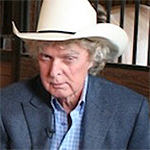Fuck every single one you.
https://www.washingtonpost.com/business ... -surfaces/..Spread is way too much as other countries say THANK YOU to clueless Jay Powell and the Federal Reserve. Germany, and many others, are playing the game! CRAZY INVERTED YIELD CURVE! We should easily be reaping big Rewards & Gains, but the Fed is holding us back. We will Win!— Donald J. Trump (@realDonaldTrump) August 14, 2019
Stocks losses deepen as a key recession warning surfaces
By Damian Paletta ,
Thomas Heath and
Taylor Telford August 14 at 6:36 PM
Recession signals intensified Wednesday in the United States and in some of the world’s leading economies, as the damage from acrimonious trade wars is becoming increasingly apparent on multiple continents.
The U.S. stock market tumbled to its worst day of the year on Wednesday, after a reliable predictor of looming recessions flashed for the first time since the run-up to the 2008 financial crisis. The Dow Jones industrial average fell 800 points, or about 3 percent, and has lost close to 7 percent over the past three weeks.
Two of the world’s largest economies, Germany and the United Kingdom, appear to be contracting even as the latter forges ahead with plans to leave the European Union. Growth also has slowed in China, which is in a bitter trade feud with the United States. Meanwhile, Argentina’s stock market fell nearly 50 percent earlier this week after its incumbent president was defeated by a left-wing opponent.
[Recession watch: What is an ‘inverted yield curve’ and why does it matter?]
Whether the events presage an economic calamity or just an alarming spasm are unclear. But unlike during the Great Recession, global leaders are not working in unison to confront mounting problems and arrest the slowdown. Instead, they are increasingly at one another’s throats.
And President Trump has responded by both claiming the economy is still thriving while dramatically ramping up his attacks on Federal Reserve Board Chair Jerome H. Powell, seeking to deflect blame.
Wednesday’s sharp sell-off was caused by an unusual development in the bond market, called an “inverted yield curve,” that often foreshadows a recession.
For the first time since the run-up to the Great Recession, the yields — or returns — on short-term U.S. bonds eclipsed those of long-term bonds. Normally, the government needs to pay out higher rates to attract investors for its long-term bonds. But with so many losing confidence in the near-term prospects of the economy and rushing to buy longer-term bonds, the U.S. government now is paying more to attract buyers to its 2-year bond than its 10-year note.
[Banks are paying people to borrow money. That’s alarming news for the global economy.]
This phenomenon, which suggests investor faith in the economy is faltering, has preceded every recession in the past 50 years.
“The stars are aligned across the curve that the economy is headed for a big fall,” said Chris Rupkey, chief financial economist at MUFG Union Bank. “The yield curves are all crying timber that a recession is almost a reality, and investors are tripping over themselves to get out of the way.”
['An absurdly odd world': Why nervous banks are paying people to take loans]
It’s the latest in a string of worrisome news about the U.S. economy. The government is expected to spend roughly $1 trillion more than it brings in through revenue this year, adding to a ballooning deficit. Business investment has begun to contract — largely because of the uncertainty surrounding Trump’s trade war — and manufacturing hiring has receded. The big hiring and investment announcements that piled up at the beginning of the Trump administration have ceased, as have the announcements of bonuses and pay increases that came after a tax cut law was passed in 2017.
Several White House officials have become concerned that the economy is weakening faster than expected, but they are not working on proactive plans to change its course. The Treasury Department has had an exodus of senior advisers in recent months, and the White House just announced a replacement for its chairman of the Council of Economic Advisers.
















